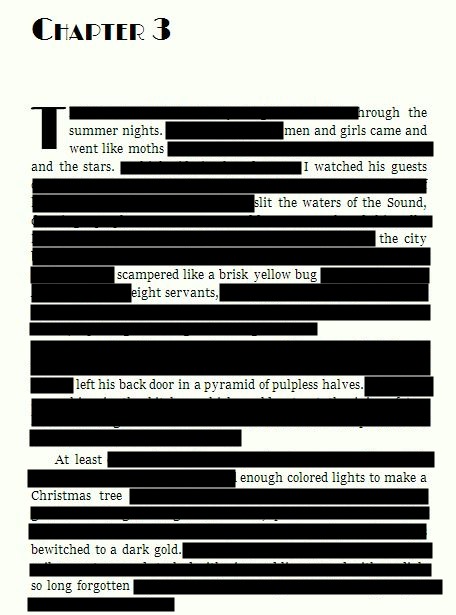One more thing that writers tend to forget: Even when your book or chapbook is artfully written and fascinating to read, people need a way of finding out about your work. With small press publishing especially, it’s up to the author to get their book into the hands of appreciative readers, reviewers, and interviewers. With that in mind, it’s crucial to use multiple platforms (traditional literary magazines, literary websites, social media, etc.) to help readers discover your book. This week, we’ll discuss several of these platforms for book promotion in greater detail. First, we should talk a little bit about how books and chapbooks fit into the literary community more generally.
Conversity: Literary Writing as a Conversation
During her tenure as editor of The Dial, Marianne Moore coined the term “conversity” to describe the way she understood literature. For Moore, writing is a kind of conversation between literary artists, in which each writer preserves some elements of the existing discussion, then modifies, revises, and parodies others. The nature of the discussion shifts as new participants enter the conversation, and others leave. The job of literary journals and presses, as Moore saw it, was to host this conversation. To provide a platform for dialogue.
With that in mind, the most surefire way to make sure that your book does well is to be as involved in this literary conversation as possible. This can mean sending work to journals and websites, but it also means responding to the work of other literary artists. Write reviews. Interview authors you admire. Be an advocate for other poets, essayists and fiction writers. I say this because the more involved in the literary conversation you are, the more people will respond to and engage your work. Getting people to engage your work, to write reviews, and ask to interview you— these things are especially crucial when your book or chapbook gets published.
The best advice I can give is to start promoting your work and the work of others before your first book is even completed. Being a reviewer, editor, or interviewer will also show you where the best places are for sending review copies, querying about interviews, etc. Getting involved promoting the work of other writers will also help you make connections with people in the literary community, who can offer insight if you’re ever unsure about how to promote a project.
Practical Advice for Getting Your Book or Chapbook Reviewed
- Review copies are valuable things. Query magazines before sending an actual review copy and find out if they’re interested.
- Keep a list of magazines that would be interested in reviewing your work. Keep another list of potential reviewers.
- When you find an interested reviewer, match them up with literary markets that have expressed a desire to publish a review. This will benefit you both, since the reviewer will receive a publication credit, and your book will get some excellent press.
- Don’t be afraid to ask writers to do a “review trade.” You review their book, they review yours. It’s a great way to find out about books you wouldn’t ordinarily read or review, thus broadening the scope of your own work. Everybody wins.
- Be a reviewer. Review editors will be more likely to assign your book or chapbook to a reviewer if you have an established relationship with them.
- Contact individual reviewers whose work you admire. Tell them how much you enjoy their reviews. Even if they don’t review your collection, your message probably brightened their day. Reviewers are frequently overlooked, even though much of the literary criticism being published is thoughtful and engaging.
Practical Advice for Getting Interviewed by Magazines
- Don’t wait for your publisher to set up interviews. Query magazines you admire and see if they’d be interested. You’d be surprised by how many writers and editors run out of people to interview after awhile.
- It often helps to find an interested interviewer, have them conduct the interview, and submit the finished product to a magazine. Most journals are terribly understaffed, and this definitely simplifies the process for them.
- Interviews are substantially less work than book reviews. People are much more likely to agree to an interview than a book review.
- Interview trades are also fair game, and a really enjoyable way to promote your book. This is also a great way to start a dialogue with another writer, and to form relationships within the literary community.
A Note on Genre Categories
- Don’t limit your promotional work to magazines that specialize in hybrid genre work. Many publications simply have a very generally labeled “Reviews” section, which is not broken up into poetry, fiction, nonfiction, etc.
Writing Assignment | Hybrid, Inc.
For this week, I’d like you to draft a marketing plan for a book or chapbook. This book or chapbook can be something that you’ve just begun, a manuscript that has grown out of the work of the class. Or, it can be something that you’re in the process of submitting and shopping around. It can also be a book that’s published or forthcoming. As you draft your marketing plan, here are some things to consider:
- What magazines would you most like to be reviewed in? Which markets are your goals?
- Which review markets seem most attainable? Where can you be sure your work will have a good chance at being reviewed?
- What steps can you take now to form working relationships with those publications?
- Where have you had poems published? Do these magazines have a reviews section?
- What friends, colleagues, or acquaintances also have books or chapbooks that will need to be promoted? How can you collaborate with them?
- What reviewers do you most admire? Which critics write beautifully and intelligently about the type of writing you’re interested in?
- As you work on this assignment, free to draw on the list of hybrid markets that was posted in lesson 2.
 Kristina Marie Darling is the author of eighteen books, which include VOW, PETRARCHAN, and SCORCHED ALTAR: SELECTED POEMS AND STORIES, 2007-2014, which is forthcoming from BlazeVOX Books. Her writing has been described by literary critics as “haunting,” “mesmerizing,” and “complex.” Poet and Kenyon Review editor Zach Savich writes that her body of work is a “singularly graceful and stunningly incisive exploration of poetic insight, vision, and transformation.”
Kristina Marie Darling is the author of eighteen books, which include VOW, PETRARCHAN, and SCORCHED ALTAR: SELECTED POEMS AND STORIES, 2007-2014, which is forthcoming from BlazeVOX Books. Her writing has been described by literary critics as “haunting,” “mesmerizing,” and “complex.” Poet and Kenyon Review editor Zach Savich writes that her body of work is a “singularly graceful and stunningly incisive exploration of poetic insight, vision, and transformation.”


